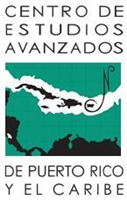What do they do?
Create original written works, such as scripts, essays, prose, poetry or song lyrics, for publication or performance.
Also known as:
Author, Creative Writer, Fiction Writer, Freelance Writer, Librettist, Lyricist, Nonfiction Writer, Novelist, Poet, Songwriter, Writer
-
-1%
Change
Ranks #57 in job growth rate300Job Openings
Ranks #17 in net job growth
Looking for colleges that offer a specific major? Use the College Match Tool to find your best-matched schools and discover your estimated Net Price!
- Bachelor's degree (50%)
- Master's degree (27%)
- Some college, no degree (8%)
- Doctorate or Professional Degree (7%)
- High school diploma equivalent (4%)
- Associate's degree (3%)
- Less than high school diploma (1%)
People in this career often have these skills:
- Writing - Communicating effectively in writing as appropriate for the needs of the audience.
- Reading Comprehension - Understanding written sentences and paragraphs in work-related documents.
- Speaking - Talking to others to convey information effectively.
- Critical Thinking - Using logic and reasoning to identify the strengths and weaknesses of alternative solutions, conclusions, or approaches to problems.
- Active Learning - Understanding the implications of new information for both current and future problem-solving and decision-making.
- Active Listening - Giving full attention to what other people are saying, taking time to understand the points being made, asking questions as appropriate, and not interrupting at inappropriate times.
People in this career often know a lot about:
- English Language - Knowledge of the structure and content of the English language including the meaning and spelling of words, and rules of composition and grammar.
- Communications and Media - Knowledge of media production, communication, and dissemination techniques and methods. This includes alternative ways to inform and entertain via written, oral, and visual media.
- Computers and Electronics - Knowledge of circuit boards, processors, chips, electronic equipment, and computer hardware and software, including applications and programming.
People in this career often have talent in:
- Written Expression - The ability to communicate information and ideas in writing so others will understand.
- Fluency of Ideas - The ability to come up with a number of ideas about a topic (the number of ideas is important, not their quality, correctness, or creativity).
- Written Comprehension - The ability to read and understand information and ideas presented in writing.
- Originality - The ability to come up with unusual or clever ideas about a given topic or situation, or to develop creative ways to solve a problem.
- Oral Comprehension - The ability to listen to and understand information and ideas presented through spoken words and sentences.
- Near Vision - The ability to see details at close range (within a few feet of the observer).
- Oral Expression - The ability to communicate information and ideas in speaking so others will understand.
- Inductive Reasoning - The ability to combine pieces of information to form general rules or conclusions (includes finding a relationship among seemingly unrelated events).
People in this career often do these activities:
- Write material for artistic or entertainment purposes.
- Edit written materials.
- Determine presentation subjects or content.
- Conduct research to inform art, designs, or other work.
- Discuss production content and progress with others.
- Coordinate artistic activities.
- Obtain copyrights or other legal permissions.
- Promote products, activities, or organizations.
- Train others on work processes.
- Collaborate with others to prepare or perform artistic productions.
This page includes data from:

 Occupation statistics: USDOL U.S. Bureau of Labor Statistics Occupational Employment Statistics
Occupation statistics: USDOL U.S. Bureau of Labor Statistics Occupational Employment Statistics
 Videos: CareerOneStop, USDOL/ETA and the Minnesota Department of Employment & Economic Development
Videos: CareerOneStop, USDOL/ETA and the Minnesota Department of Employment & Economic Development





